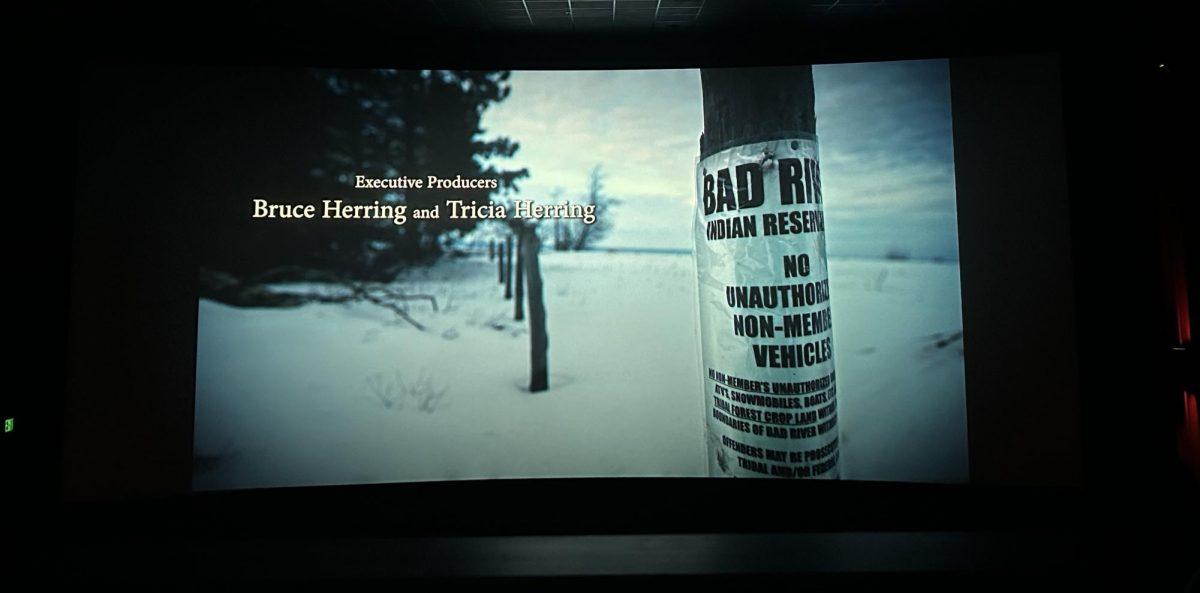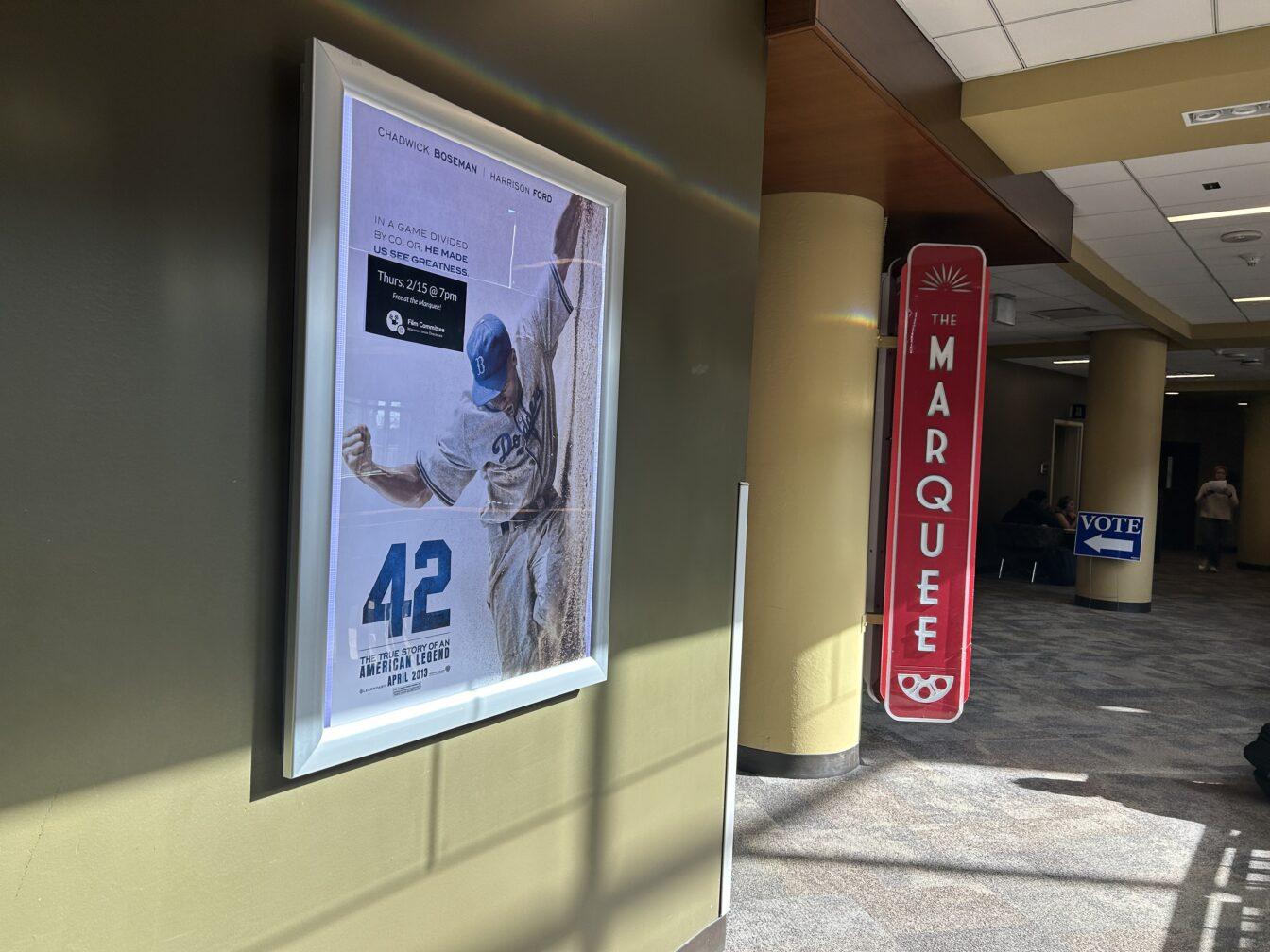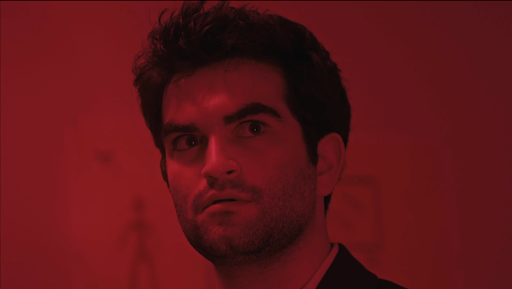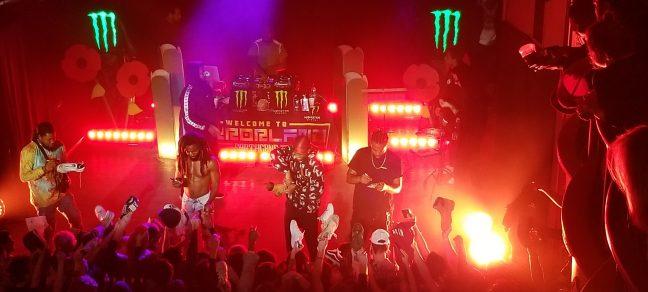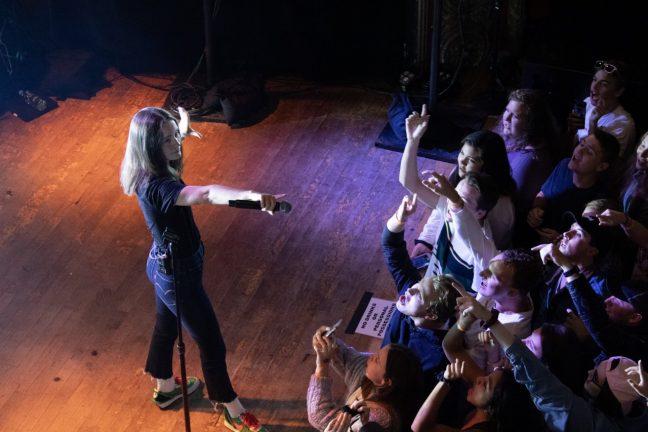Director Neill Blomkamp has a formula: a protagonist burdened with a life-threatening condition subversively defies a pursuing authority against a gritty, near-future urban backdrop. Heavy-handed metaphoric critiques of modern society flourish as the underdog-supporting characters aid the imperiled protagonist in their defiance of the oppressor, with a grisly climax giving way to a bittersweet ending.
His works “District 9” and “Elysium” followed this outline, and “Chappie” is no exception. In the overall concept, the movie is formulaic and relatively unoriginal. It follows the general story arc Blomkamp established in his previous productions, and the “robot becomes sentient and becomes the relatable hero” idea is nothing new (see “Short Circuit,” “Robocop,” “WALL•E,” “Her,” etc). Despite this, “Chappie” still manages to stand out. While lacking a claim to conceptual originality and a nonlinear storyline, Blomkamp executes the movie with unique creativity thanks to his artistic influence and the surprising synergy of an unlikely cast.
“Chappie” takes place in Johannesburg, South Africa in the near future. Crime runs rampant and the police force must rely on the assistance of Tetravaal, a military contracting enterprise specializing in artificial intelligence. A young programmer named Dion (Dev Patel, “The Second Best Marigold Hotel”) has created humanoid robots who aid human officers in law enforcement operations.
Our robotic protagonist Chappie comes into being when Dion salvages a damaged robot and reprograms it with a special algorithm that allows the unit to think for itself, developing as a human being would but with greater speed and eventually greater ability. Dion’s plans for his mechanical prodigy are warped, however, as he is forced to complete the project under the supervision of two local thugs, played by none other than Yolandi Visser and Ninja of Die Antwoord.
The pair seems removed from the film at times – the two go by their stage names, blast their hit tunes and wear band merchandise on-screen. Their presence contributes to an intermittent, yet heavy-handed issue of product placement that plagues the movie (looking at you, Red Bull and Sony). However, their eccentricities bring a sort of surreal aspect to the story that I came to appreciate.
In the annals of movie robots, Chappie himself shines as one of the most prominent and interesting automatons to appear on the silver screen. Beginning life with a blank hard drive and a child’s mind, he quickly grows to possess a mature and multifaceted personality, as the audience witnesses his rapid crash course from infancy to adulthood. From the simple pleasure of his first car ride to angry teenage outbursts, we recognize the perils of our own adolescence in Chappie’s development. In all stages, it’s hard not to fall for the charming automaton, and here arises the peculiar dilemma of artificial intelligence.
Chappie is as lovable and endearing a character as any human – to the degree that one immediately forgets he is a metal frame expressing a computer algorithm. This challenges our notion of humanity, as we’re forced to reconsider whether humans are the only ones capable of expressing personality and defining themselves as individuals.
Chappie’s life takes a turn, however, as Yolandi and Ninja attempt to raise him in considerably different manners. While musically cooperative, in the film the duo are in many ways polar opposites. Yolandi, enamored with the creative potential of Chappie, protects his childish innocence and attempts to shelter him, while Ninja attempts to condition Chappie into a thug, a robotic sidekick to assist in his criminal operations. The dichotomy between Yolandi’s nurturing spirit and Ninja as a force for corruption explores Chappie’s loss of innocence, as these criminal influences inevitably affect him to some degree.

Gif courtesy of ClickHole.com
It’s painful to see Chappie’s sense of childish curiosity challenged by the harsh reality of the world outside his home, an abandoned warehouse decorated in a manner identical to most Die Antwoord music videos. Cartoon dicks, pastel colors, and drawings of gremlins saying “fuck you” in Afrikaans cover its crumbling walls. While initially distracting, this obscene hideout becomes a curious metaphor for childhood innocence, a place where Chappie can explore his juvenile impulses while insulated from the criminal world surrounding him. He is at his most lovable in this rude Neverland, a garish product of Die Antwoord’s twisted imagination that has become an unlikely safehaven for the conflicted robot.
By the end of the film, Chappie has become a titanium Pinnochio, an endearing hero that proves the versatility and tremendous capacity of this theoretical artificial intelligence system. He matures into an entertaining bundle of conflicting habits, a hybrid of his innocent wonder for the world and his standoffish, trash-talking criminal side. His evolved self-awareness elevates him from an entertaining novelty to a respectable and sympathetic adult character, developing his own morals and demonstrating empathy and selflessness on behalf of his human companions. In conduct and consistency in selflessly aiding his friends, there is clear irony in how a robot demonstrates the most humanity out of a group of humans.
“Chappie” cannot be lauded for originality in story or idea, but the unique manner in which the story is told distinguishes it in its genre. With the surreal creative energy of Die Antwoord and the captivating mechanical phenomenon that is Chappie, the film explores themes of mortality, childhood, loss of innocence and the fight against authority in this surprisingly unique tale. From tender moments of discovery to interspersed levity to grisly scenes of riveting combat, “Chappie” represents an admirable achievement that stands out in an already crowded genre.
3.9/5















